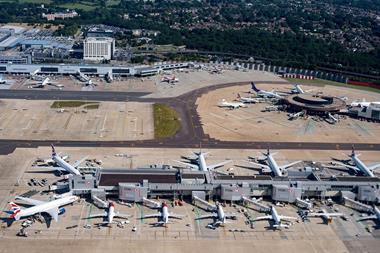As the logistics industry continues to bounce back from the impact of the pandemic, new employment opportunities are being created in the sector.
With the use of new technologies for decarbonisation (such as sustainable aviation fuels and zero emission aircraft) on the rise and increasing use of technical solutions such as automated warehouses to speed deliveries, the challenge is now on for the airfreight sector to recruit a new cohort of skilled staff, against the backdrop of a labour market in which logistics has a traditionally low public awareness score.
Generation Logistics, which launched earlier this month, is a new campaign run by the logistics industry in partnership with the UK's Department for Transport (DfT), which aims to tackle the industry’s long-term recruitment issues.
A particular focus for the campaign will be the shortage of skilled staff in roles like technicians, mechanics, warehouse staff and in new technology such as robotics and automation, and change the perceptions currently surrounding the logistics sector.
The campaign’s research shows that 90% of the country has never considered a career in the logistics sector – yet, the industry employs over 2.6m people.
Generation Logistics is set to raise awareness of an industry often overlooked by those seeking employment and highlight the accessibility of those opportunities across all ages, locations and educational backgrounds.
The Covid-19 pandemic highlighted the important role of airfreight in ensuring the consistent availability of goods to consumers, while facilitating the establishment of new supply chains to enable the distribution of Covid-19 tests, vaccines, and personal protective equipment (PPE).
Generation Logistics aims to build on the exposure this shift created to provoke a reassessment of the industry and highlight the opportunities available.
In 2019, the UK airfreight industry employed 2,100 individuals. The Jet Zero Strategy report, published July 2022, includes a five-year delivery plan that estimates that by 2035 the development of a domestic industry for the production of sustainable aviation fuels could support up to 5,200 UK jobs.
This new workforce will need the skills to handle new systems and innovative technologies such as drones and advanced air mobility, particularly if the country’s Net Zero targets are to be reached.
Using a host of media tactics, and with a comprehensive information and recruitment hub hosted online, Generation Logistics is set to challenge perceptions about the opportunities which the industry provides.
Backed by businesses and trade associations from across the sector, supported by funding from the Department of Transport, the campaign is set to raise awareness of the roles available with groups that are currently underrepresented in the industry, including young people, those returning to work after a career break or those hoping to switch roles to a longer term career.
To help raise awareness of the campaign and encourage target groups to participate, those working in air cargo are invited to like and share messages from the campaign’s social media channels, including LinkedIn, Twitter, Facebook, Snapchat and TikTok - search @GenerationLogistics or visit the hub at www.generationlogistics.org.















